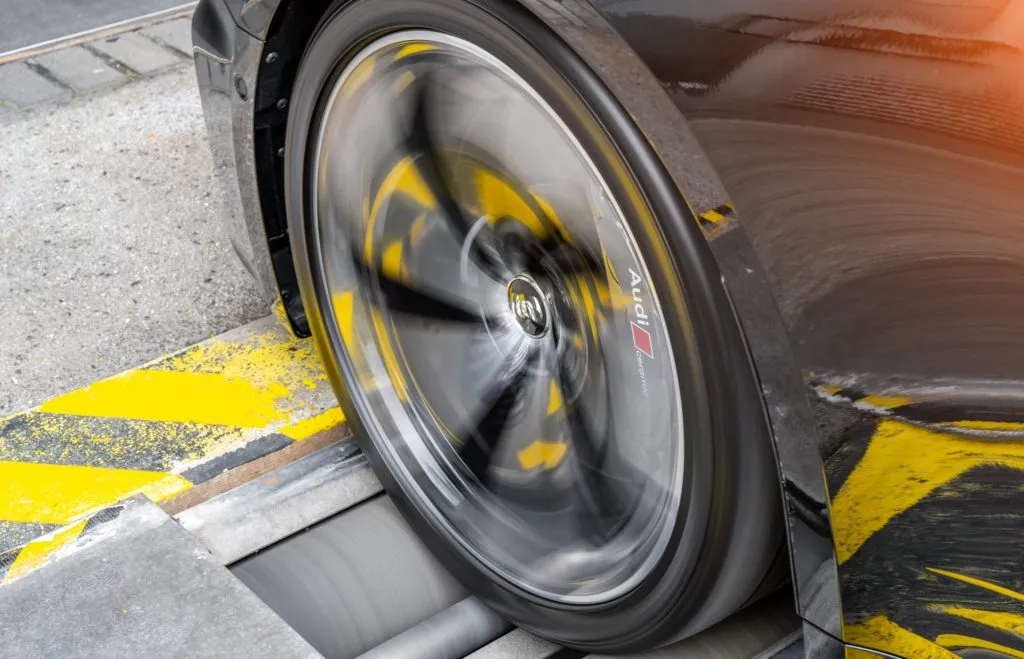Common Audi Problems and the Models You Should Watch Out For
Most Common Problems in Audi Vehicles
Audi is known for its blend of luxury, innovation, and performance in every vehicle it produces. However, like any premium brand, some Audi cars have recurring issues that owners should be aware of. Early detection of these common problems can help reduce repair costs and improve long-term reliability.
- Electrical issues: Faulty sensors, malfunctioning infotainment systems, and persistent dashboard warning lights are common across several Audi models. These may require software updates or part replacements, especially in A4, Q5, and Q7.
- Excessive oil consumption: Some Audi engines, particularly the 2.0-liter turbocharged versions, are known for burning more oil than expected. This can require more frequent oil changes between services, and if ignored, may lead to engine wear or failure that will need professional audi engine repair.
- Oil leaks: Oil seepage from valve cover gaskets or camshaft tensioners can affect engine performance if not addressed early.
- Transmission issues: Audi models with DSG (direct-shift gearbox) may experience jerky acceleration, rough shifts, or delayed gear changes due to mechatronic or clutch pack issues.Models with CVT (continuously variable transmission) can suffer from hesitation or slipping during acceleration and unusual noise, often related to belt or pulley wear.
- Timing chain tensioner failure: Some older Audi engines may suffer from timing belt problems, which can lead to serious engine damage if not resolved.
- Cooling system problems: Water pump or thermostat failures are also common, potentially leading to overheating and engine issues.
While these challenges don’t affect every Audi model or driver, they are among the most reported concerns. Regular maintenance and prompt attention from an experienced mechanic can help address them early and keep your Audi running at its best.
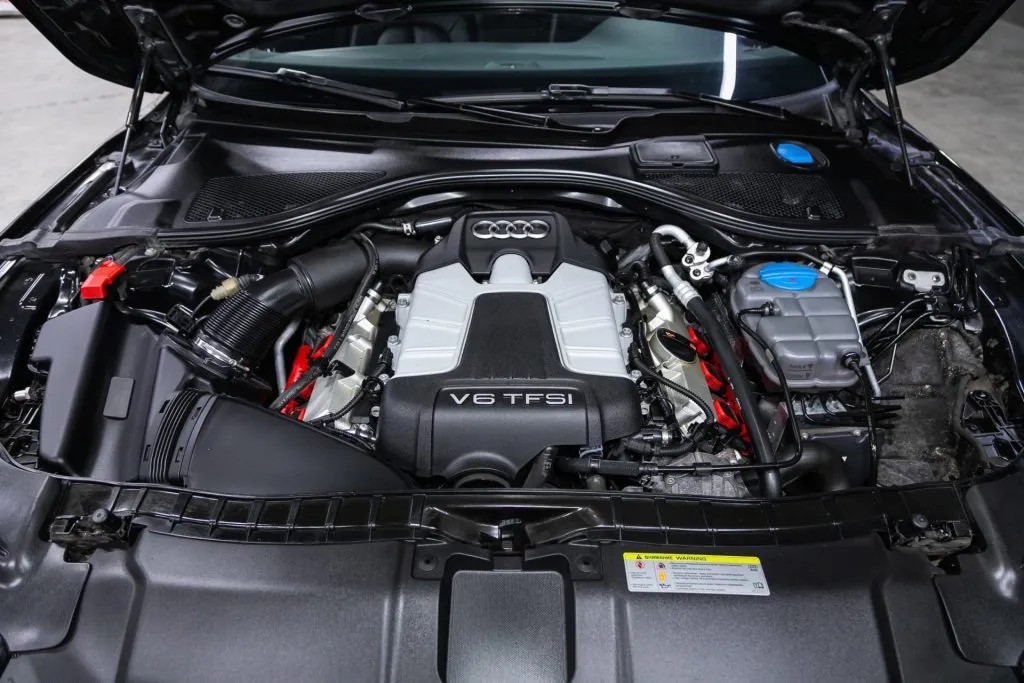
What Audi Has The Most Problems?
While Audi offers exceptional design and strength, some models have been more frequently reported to have reliability issues, based on owner reviews, automotive forums, and industry reports. The most cited models include the Audi A4, Q5, A6, and others.
Audi A4
Owners of certain A4 models, especially older ones, have reported issues with oil consumption, electrical problems, and timing belt failures. Additionally, models equipped with Audi’s Multitronic CVT (continuously variable transmission) have received complaints about rough shifting, delayed acceleration, or complete transmission failure. Regular fluid changes and timely diagnostics are essential to prolonging the life of this transmission.
Oil leaks are another recurring problem, often caused by worn valve cover gaskets, camshaft seals, or oil filter housing gaskets. These leaks can lead to reduced engine work or significant damage if not addressed promptly.
Audi A6
Known for its premium feel and comfort, the A6 has occasionally been noted for engine issues, turbocharger failures, and suspension wear. Dome model years have also experienced electronic problems affecting dashboard displays and sensors.
Like the A4, the A6 can suffer from timing chain tensioner failure in specific engines, particularly the 3.0-liter V6. If left untreated, this can lead to engine misfires, poor performance, or serious damage. Oil leaks are also a common complaint, especially on high-mileage models. They typically involve the valve cover gaskets, camshaft and oil cooler seals.
Some A6 models, particularly those with the Multitronic CVT or early DSG systems, have faced transmission issues such as hesitation, jerky shifts, or outright failure.
Despite these concerns, the Audi A6 remains a luxurious and enjoyable car.
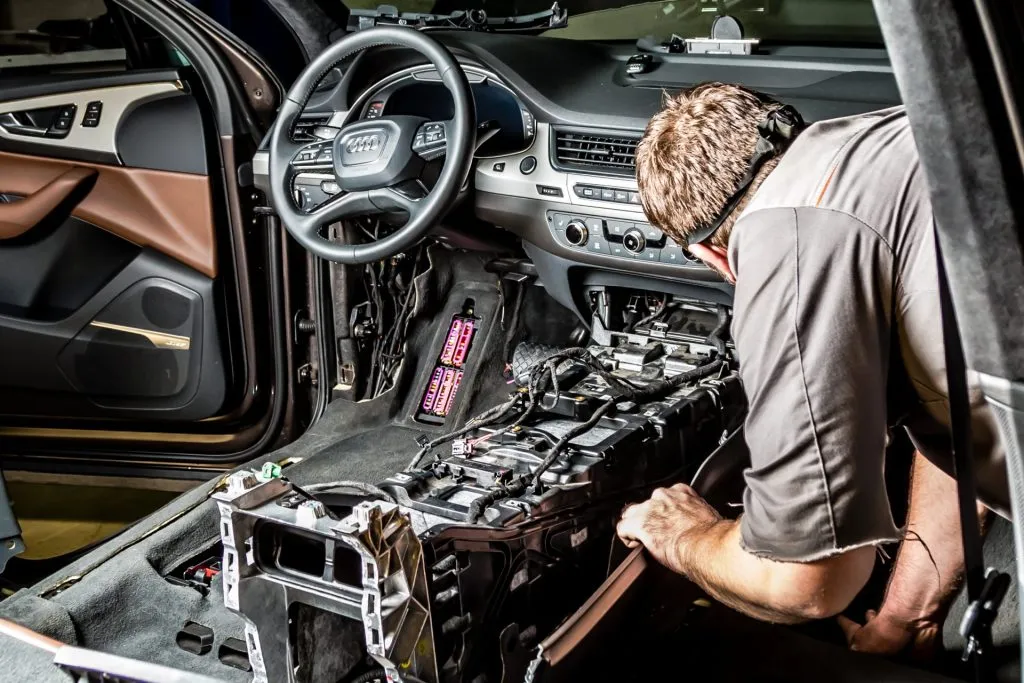
Audi Q5
As one of the brand’s best-selling luxury SUVs, the Q5 is praised for its power, practicality, and elegant styling. However, it’s not without problems. Drivers have reported recurring issues with the dual-clutch transmission, excessive oil consumption, and malfunctions in electronic systems such as the infotainment unit or automatic tailgate.
Many Q5 models use a Haldex-based all-wheel-drive system with a hydraulic clutch that distributes torque between the front and rear wheels. Over time, the clutch pump or filter can clog or fail due to dirty fluid or poor maintenance, causing loss of all-wheel drive, warning lights, and reduced traction, especially dangerous in slippery conditions. Regular fluid changes and filter cleaning help keep this system working properly.
Early Q5s with the 2.0T engine are known for timing chain tensioner failures, which may cause a squealing sound at startup and, in severe cases, engine damage. Though Audi addressed this in later models, it’s still a concern for older ones.
Electrical problems, including faulty infotainment systems, parking sensors, and power tailgates, are also common. Newer models sometimes show dashboard errors, bad oxygen sensors, and issues with adaptive cruise control or lane assist, often due to faulty control modules or wiring.
Some Q5 engines also burn oil quickly due to piston ring problems. Regular oil checks, detailed maintenance records, and periodic wheel alignment and balancing are advised to keep the vehicle running smoothly and safely.
Audi A8
This model is the top of Audi’s luxury lineup, offering modern technology and a smooth, refined ride. However, despite its superior engineering, drivers have reported brake problems such as squealing, pedal vibration, and intermittent ABS warnings. Squealing is often caused by worn pads, rotor glazing, or brake dust buildup. Vibration during braking can indicate warped rotors, usually due to overheating.
ABS malfunctions can trigger warning lights and reduce braking stability by preventing the system from properly modulating brake pressure, increasing the risk of wheel lockup and loss of control during hard braking.
If you notice a soft or spongy brake pedal, this could indicate air in the lines or low brake fluid levels.
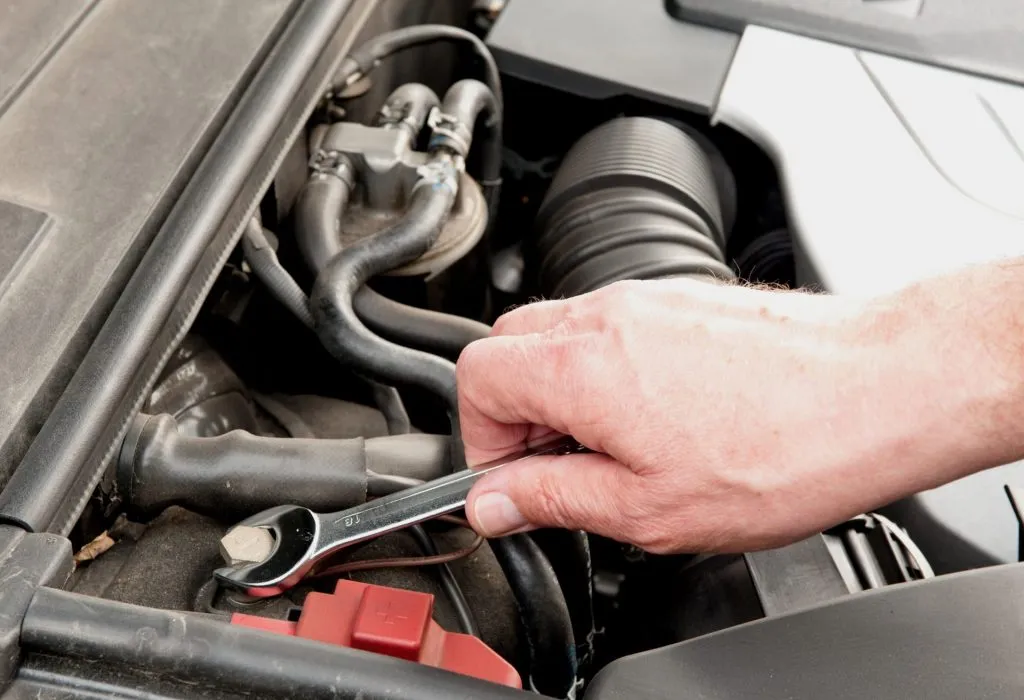
Audi A3
Coolant leaks are a known issue on some A3 models, often caused by weak points in the cooling system. Common sources include cracked plastic coolant hoses, a leaking radiator, or a worn water pump.
These leaks can lead to low coolant levels, engine overheating, and dashboard warning lights. In many cases, water pump leaks occur due to age or seal failure, while plastic components can become brittle and crack over time. It’s important to address coolant loss promptly to avoid engine damage. Regular inspections and early replacement of worn components can help maintain the reliability and efficiency of your A3’s cooling system.
Audi Q7
Many Audi owners report unwanted noises from the suspension system. Knocking, creaking, or squeaking sounds are often signs of wear in key components. One of the most common causes is worn suspension arms. Over time, the rubber bushings harden or crack, leading to increased play and noise when driving, especially on uneven surfaces.
Shock absorbers are another common issue, they can lose effectiveness or suffer internal damage, resulting in knocking sounds and reduced ride quality.
In Q7 models equipped with air suspension, problems can be more complex. Air struts may leak, or the compressor may wear out, leading to uneven ride height or a whistling noise.
Audi TT
This convertible offers a fun and stylish open-air driving experience, but some models have issues with the soft-top mechanism. Malfunctions can occur in the mechanical, hydraulic, or electrical systems that control the roof.
A common problem is a faulty electric motor or unit, which can cause the roof to become stuck halfway or fail to operate. This may result from worn gears, a faulty relay, or corroded electrical connectors.
The most common issue in the hydraulic system is leaks in the lines or a faulty pump, which can prevent smooth operation. You may hear the motor running without movement or notice fluid leaking under the car, in the engine bay, or behind interior panels such as the trunk lining or door trims. Mechanically, alignment problems or worn valves can cause the roof to close unevenly or trigger warning lights.
These observations are taken from real user feedback and online car forums. It’s important to remember that not all vehicles of listed models will experience these common Audi problems. Being informed and following proper maintenance helps minimize issues and preserve the expected performance of the car.
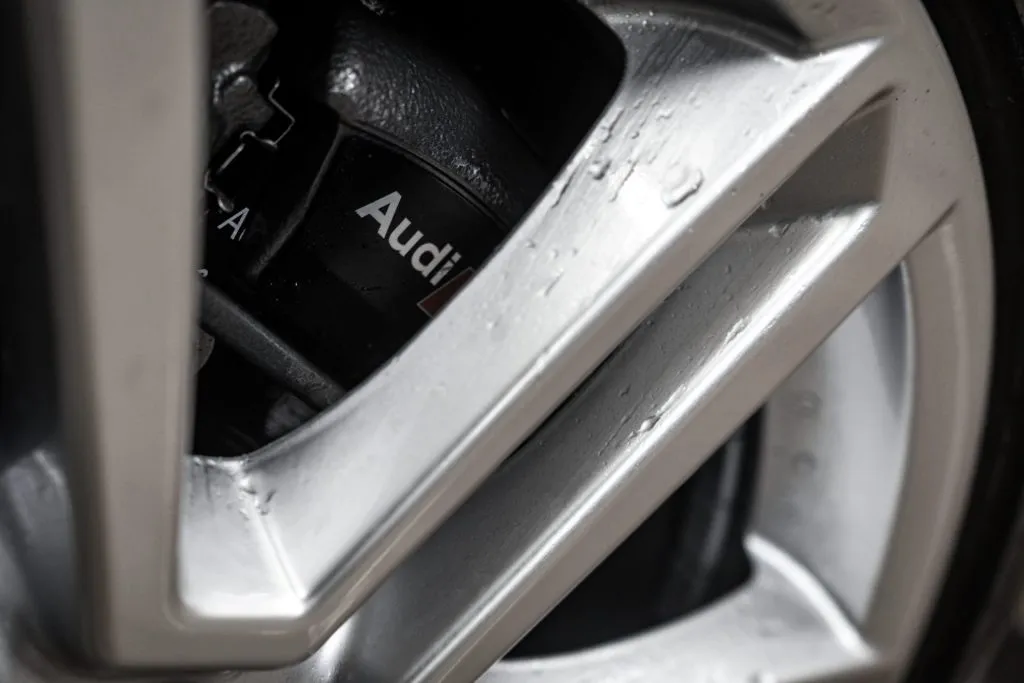
Comparing Reliability Across Germany’s Top Luxury Car Brands
When discussing German luxury brands, Audi, BMW, and Mercedes-Benz, all three deliver strong performance and prestige but share similar challenges in reliability and maintenance. While Audi often ranks in the middle regarding reliability, each brand faces specific common issues and requires above-average upkeep due to their advanced technologies.
According to recent reliability studies, such as those conducted by J.D. Power and Consumer Reports, Audi usually ranks in the middle of the three. Many Audi issues that have been reported include carbon build-up, faulty piston rings, and spark plug failure, all of which can trigger the check engine light and potentially lead to further damage if not addressed promptly. Additionally, drivers of pre-owned Audi vehicles often need to have the timing belt replaced, especially if maintenance records are incomplete.
BMW cars are known for their engaging driving dynamics and strong performance at high speeds. But their complex electrical components and precision engineering can give rise to reliability concerns. Common problems that occur in BMW vehicles include worn valve seals, failing catalytic converters, and deteriorating spark plugs, all of which can negatively impact operation.
Mercedes-Benz has scored well in many reliability surveys, particularly with newer models. However, it’s worth noting that issues may arise in older models, especially with electrical components, air suspension systems, and engine parts that can tear or wear down over time. Replacing these parts often requires specialized labor, contributing to the brand’s above-average maintenance costs.
All three brands require above-average upkeep and repair costs due to their innovative technologies and premium components. The difference in reliability is often insignificant, and regular service plays a more important role in long-term performance than brand alone.
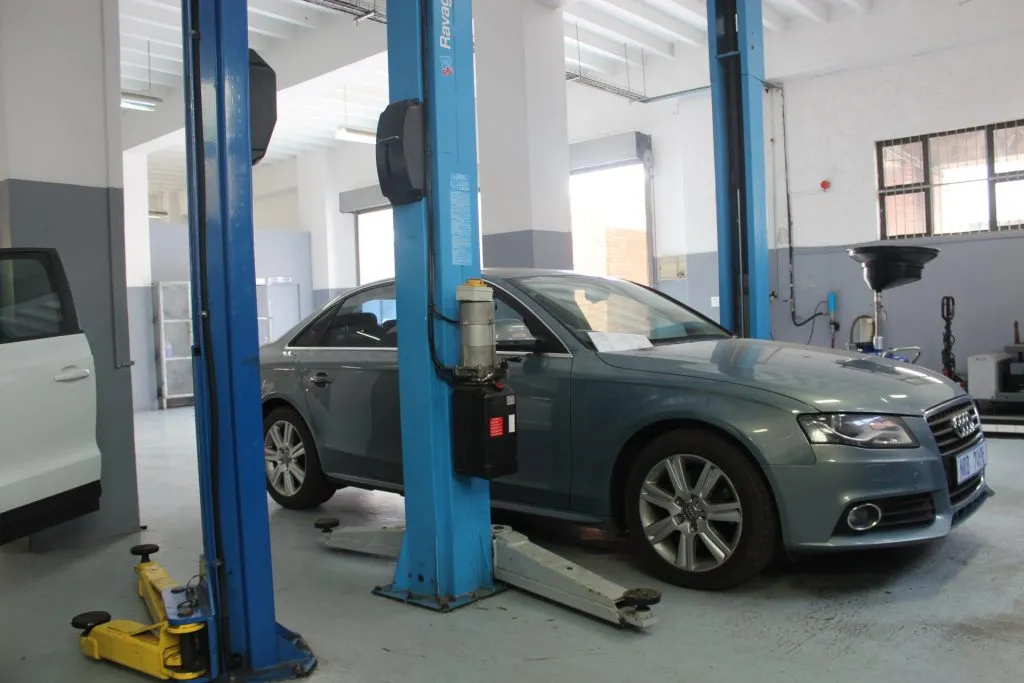
Tips to Avoid Common Audi Issues
- Follow the recommended schedule: Regular maintenance is essential for Audi vehicles.
- Pay attention to warning lights and sounds: Modern Audis rely heavily on sensors and control units. Ignoring warning lights or unusual sounds can allow small problems to escalate.
- Inspect the vehicle thoroughly before you buy: When buying a used Audi, ask for a full service history and have an initial inspection by a qualified mechanic. Focus on areas known for issues, such as the Multitronic transmission, cooling system, electrical problems, and brake problems.
- Be careful with certain models and engines: Some versions are more problematic than others.
- Update software and check for recalls: Audi regularly releases software updates for control units, infotainment systems, and other electronics. Keeping your car’s systems up to date can improve performance and help prevent breakdowns.
Staying proactive with these steps can help extend the lifespan of your Audi and reduce the likelihood of unexpected repairs.
